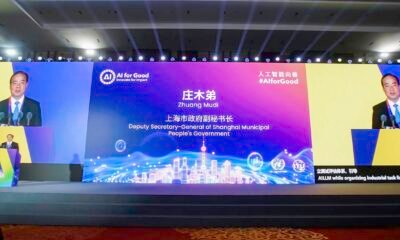Easy Manufacturing AX Strength Accelerates AI Transformation for Small and Medium Businesses
Confort Lab, a manufacturing operation management AX (artificial intelligence conversion) solution company, announced on the 2nd that it has attracted pre-series A investment from Kakao Ventures.
Based on manufacturing data, ConfortLab develops solutions that help automate operational management and transition to AI. From various facilities and lines at manufacturing sites to IT systems, different data are easily integrated and standardized to be converted into data assets that AI can analyze.
Based on this, it integrates systems and AI-based automation functions essential for manufacturing operations such as production (MES), facility (EAM), quality (QMS), and energy (EMS) management, and helps manufacturing companies of all sizes accelerate AI transformation beyond digital transformation. Most small and medium-sized factories are improving their manual work and skill-dependent work methods with AI-based quality tracking, control condition AI recommendation, and data-based AI facility maintenance functions to reduce defect rates and increase productivity.
The core product, PORTA, a no-code-based AX platform, consists of “PORACON,” facility and sensor data collection equipment, “PORTA Neurobase,” a web-based no-code development tool “PORTA STUDIO,” and a manufacturing operation management system “PORTA Apps,” which integrates AI agents. The construction of infrastructure, which took several months, was shortened to less than three days and the cost was also reduced to one-fifth, greatly lowering the barriers to introducing the site. Based on attracting investment, ConfortLab plans to strengthen its position as an AX innovation partner in the manufacturing site.
Confort Lab consists of CEO Kim Ki-joong, who has accumulated technical experience and expertise in industrial system solutions through TmaxSoft, Doosan Energy, and SAP Labs, Vice CEO Kim Ha-na, a global marketing expert from Hancom Group Strategic Marketing, and CTO Lee Sung-geun, a cloud and system software expert from TmaxSoft and SAP Labs. Strong teamwork accumulated by working together for more than a decade and system engineering capabilities accumulated in complex manufacturing sites are considered strengths. It is said that it is an optimized team for building high-quality integrated solutions from manufacturing equipment installation to network and data platforms and leading automation of manufacturing sites.
Kim Young-moo, a Kakao Ventures judge, said, “It is expected to create a core foundation that advances the digital transformation of the manufacturing industry beyond the level of simple automation as a starting point for object ontology that binds factory operations into one language.”
“In order for the manufacturing industry to take off again, innovation in small and medium-sized factories, which account for 99% of the total, is essential,” said Kim Ki-joong, CEO of Confort Lab. “Conport Lab will grow into a ‘Palantir of Korea’ that creates AX solutions that the field really needs and designs the future of manufacturing on the global stage beyond Korea.”





















-1756728192656.jpg)

















